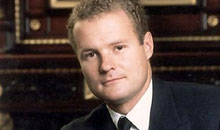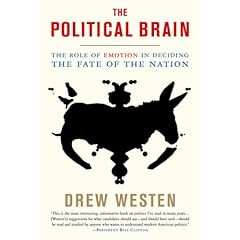
Neither George Osborne or Peter Mandelson are popular politicians outside their close circle of friends and admirers. Given that Nathaniel Rothschild was apparently a 'best friend' of Osborne's since their days together wrecking restaurants as members of the obnoxious Bullingdon Club, and has now turned so firmly against him, perhaps Osborne's friends aren't that wild about him either.
The story of potential donations is not, whatever the Tories would like us to think, a non-story. It has murky depths and there were clearly discussions about getting donations from an extraordinarily inappropriate source. But this aspect remains vague at present, stuck in the realm of speculative conversations and rather dream-like 'what ifs'. What is much clearer is the remarkable lack of political judgement of a man who is sometimes seen as the Conservatives' co-leader, and the narrow, rarefied, world that our political elite sees fit to move in.
First, the judgement issue. George Osborne has made several mis-steps here. He took an ill-advised visit to the yacht of a dodgy Russian billionaire (and yes, ALL Russian billionaires are dodgy, given the creation of their wealth out of the rush for state assets following the fall of communism!). Also,at a time when the Conservatives should be trying to distance themselves from the perception of free-loading that was such a weakness of Tony Blair's, Osborne takes a free holiday from a multi-millionaire hedge-fund manager. Just reflect on last summer for a second - a summer when Gordon Brown was anxious to be seen as taking a modest British holiday in Suffolk, and David Cameron paraded the joys of west country beaches (before, less publically, jetting off to Turkey!). This need for modesty from political leaders clearly passed Osborne right by. Then there's Osborne's extraordinary action in leaking the comments made to him by Mandelson at a private dinner hosted by Rothschild. Here, Osborne was trying to enter Mandelson territory, and has been badly burned, just as the malicious Mandelson himself was burned as a consequence of using such tactics over many years. To call Osborne a fool and a charlatan in this respect hardly does him justice.
Second, the world of the political elite. Whatever the ins and outs of the donation question, the stench of unmerited wealth and privilege that emanates from this story almost overwhelms it. The whole thing is like one of the less savoury scenes from Brideshead Revisited. Osborne and Rothschild were fellow members of the Bullingdon Club - the ultimate haunt of spoilt, wealthy upper-class vandals with no respect for anyone who doesn't come into their rarefied circle. Andrew Feldman, the Tory fund raiser, and now chief exec., who was asked by Osborne to join him on the visit to the Russian billionaire, is another member of the narrowly based Oxford circle - a mate of David Cameron's, himself a member of the aforementioned Bullingdon Club. The unsavoury Russian billionaire, and the thoroughly tarnished EU Business Commissioner add to the sense of unreality, and this heads into overdrive when you realise that Rupert Murdoch, owner of the newspaper which has just published Rothschild's letters, parked his yacht near to the Rothschild estate and dropped in for a visit too. Was Osborne really wanting a nice holiday, or was he attracted by the presence of media and financial star power?
In Britain today, hundeds of thousands - potentially millions - of households face losing their jobs, or homes, or both; they face increasing hardship as the economy heads into slow mode; ordinary families wonder what they will have to leave out of the weekly food basket; people young and old seek shelter on our street; our cities house increasing levels of crime, much of it lethally violent; the downward social spiral occasioned by greater drug and alcohol abuse engulfs more and more people; and George Osborne and Peter Mandelson between them offer us a glimpse of a faraway political world that seems ever more spoilt, ever more insular, ever more incapable and ever more irrelevant. From such nonsense the seed of political revolution is often sown.
























 Preserve Us!
Preserve Us!









